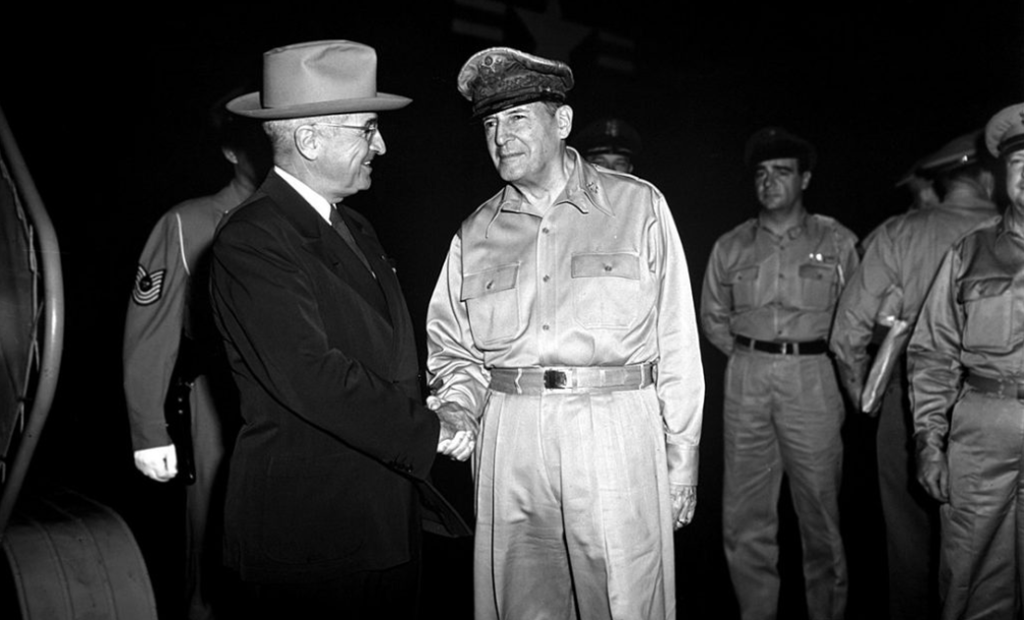
General Douglas MacArthur was one of only nine Americans to hold the five-star general rank. He commanded the South West Pacific Theater during World War II, over saw Japan after its surrender, and was selected to command the United Nations efforts to repel the North Korean advance after hostilities broke out. The North’s offensive was finally held at the Pusan Perimeter, a tiny pocket of land in the south of the Korean Peninsula. To strike back, General MacArthur planned a daring amphibious landing that retook Seoul and threatened the North Korean Army’s supply lines which caused them to retreat home at a rapid pace. The quick offensive into North Korea by MacArthur drew China into the conflict, which halted the United Nations’ advance and forced them back to the 38th Parallel. It was here that the ensuing stalemate would cause General MacArthur to begin to butt heads with leadership in the United States.
With Chinese troops now supporting North Korea, MacArthur wanted to expand military operations in the South China Sea and China itself. He initially proposed for a naval blockade of China, as well as restrictions to be lifted on air strikes within their borders, and to open support for Chinese Nationalists to start their own operations. All of which were rejected by Washington D.C. who were attempting to keep the war contained to the Korean Peninsula. Frustrations between MacArthur and Washington began to mount when General MacArthur went public with his frustrations and the “limitations” placed on him and his command. Though President Truman did not relieve him, he later recounted that he should have at that moment.
The tipping point occurred when, as Truman and those in the United Nations concluded a negotiated settlement was the best chance for peace as the stalemate ensued, MacArthur made a public statement without contacting the Joint Chiefs of Staff or President that he, personally, was open to negotiating with the “Chinese military commander.” MacArthur had outright disregarded his superiors and in a response letter to Congressman Martin he expressed views that were “not only in disagreement with the policy of the government but was challenging this policy in open insubordination to this Commander in Chief.” General MacArthur’s misconception of what the United States goals were in Korea and refusal to bend to the civilian leadership in its execution are what ultimately led to his dismissal on April 11, 1951.
Resources
Carter, Rocky L. “The Truman-MacArthur Debate: A Case-Study of Civil Military Relations and Implications for Foreign Policy Development.” Troy University. 1996. Accessed from https://search-proquest-com.ezproxy.lib.ou.edu/docview/1986794852?pq-origsite=primo.
Norman, John. “MacArthur’s Blockade Proposals against Red China.” Pacific Historical Review. Vol. 26 (2). 1957. Pg 161-174.
Manchester, William. American Caesar: Douglas MacArthur, 1880-1964. Little, Brown and Company. September 30, 1978.
Truman, Harry S. Memoirs by Harry S. Truman: Years of Trial and Hope, 1946-1952. Doubleday & Company, Inc. 1956.



